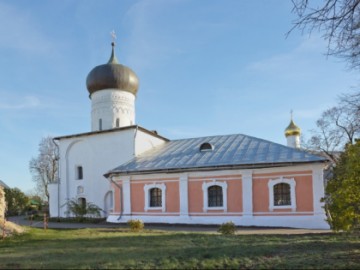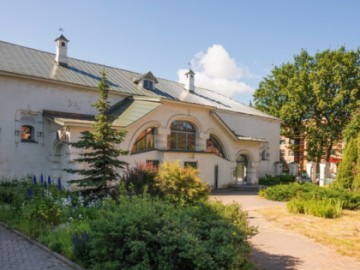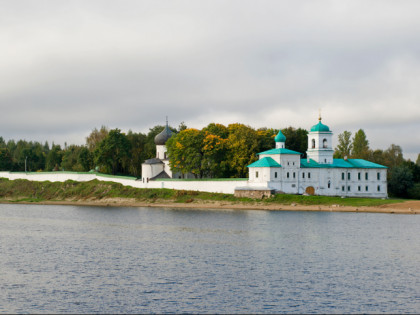Pskov: spiritual origins of Russia
Pskov is a monument of ancient Russian architecture with a history of two thousand years! This city saved Rus repeatedly from enemy invasions. The traditions of the Russian culture were preserved in the walls of the ancient Pskov Kremlin in the most difficult times. In each temple one can see the works of the masters of the unique Pskov school of architecture and icon painting. And the magnificent frescoes of the Transfiguration Cathedral of the Mirozhsky Monastery are a real treasure of the world culture. People go to Pskov to visit the places where Princess Olga and her grandson, Rus baptizer — Prince Vladimir, were born, as well as to visit the Mikhailovskoye estate, where the great Russian poet A.S. Pushkin lived and worked.
Отели города Pskov
See all
Restaurants

Match Bar
Night Club • Pub • Sports bar
+7 911 3559000
Payment methods:

Old Krom
Restaurant • Pub • Grill bar • Catering
+7 811 2298136
Payment methods:

Moglino
Banquet room • Café
+7 8112 670500
Payment methods:

Panorama
Banquet room • Café • Catering
+7 8112 605606
Payment methods:
All sights in PskovSee all
Places of interest in Pskov

Pskov Kremlin
Architectural Monuments • Museums and Exhibitions • Other places

Mikhailovskoye Museum Reserve
Museums and Exhibitions • Other places

Mirozhsky Monastery
Architectural Monuments • Temples and places of worship • Abbeys and Monasteries • Other places

Gremyachaya Tower
Architectural Monuments • Other places

The Pogankin Chambers
Architectural Monuments • Museums and Exhibitions

Pokrovskaya Tower
Architectural Monuments • Castles, Fortresses and Palaces

Snetogorsky Monastery
Architectural Monuments • Temples and places of worship • Abbeys and Monasteries • Other places

Chambers of merchant Menshikov
Museums and Exhibitions






 Castles, Fortresses and Palaces
Castles, Fortresses and Palaces
 Museums and Exhibitions
Museums and Exhibitions
 Other places
Other places
 Architectural Monuments
Architectural Monuments
 Temples and places of worship
Temples and places of worship